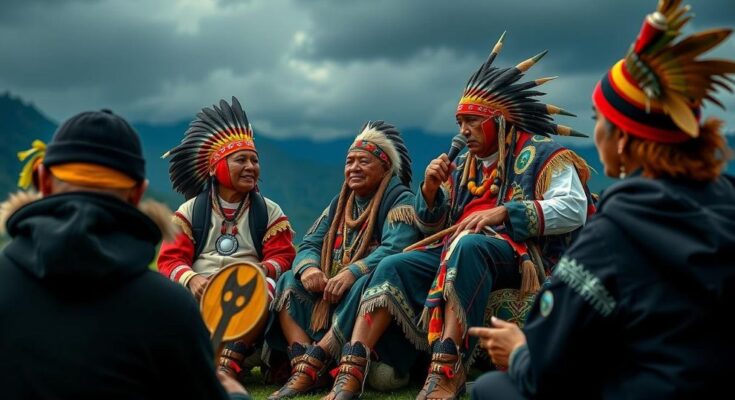At COP29 in Baku, Indigenous leaders voiced their concerns regarding the impacts of climate change on their communities while offering insights rooted in their traditional practices. They highlighted rising sea levels, water contamination, and loss of biodiversity as urgent issues, emphasizing the importance of their role in fighting climate change and preserving the environment.
During the COP29 U.N. Climate Summit held in Baku, Azerbaijan, Indigenous leaders from around the world made significant contributions by highlighting the adverse effects of climate change on their communities. They shared personal accounts of rising sea levels, environmental degradation, and the resulting health issues, while also presenting solutions stemming from their traditional practices and knowledge. With an emphasis on sustainability and deep-rooted connections to their environments, these representatives advocated for significant recognition and action against climate crises affecting their regions, illustrating their indispensable role in combating global warming. Participants included individuals from diverse backgrounds, such as Saina Ekaterina Savvinova from Yakutsk, Russia, who lamented the loss of snow in her childhood, and Antumalen Ayelen Antillanca Urrutia from Chile, who criticized the pollution of Ranco Lake affecting their drinking water. Highlighting the urgency of their situations, Flora Vano from Vanuatu expressed how rising sea levels threaten local food security and increase gender-based violence in her region. Each account underscored the intricate relationship between Indigenous tribes and their environments, further stressing the importance of preserving these invaluable ecosystems in the fight against climate change.
The participation of Indigenous communities in global climate discussions, such as the COP29 summit, has become increasingly critical. Historically, these communities have borne the brunt of climate change impacts due to their close relationship with nature and reliance on the land for survival. They possess unique knowledge systems that can contribute to effective climate change mitigation strategies. As climate-vulnerable groups, their voices are essential for informing global policies and shaping sustainable practices to protect both the environment and their ways of life.
The narratives shared by Indigenous peoples at COP29 reflect a profound understanding of the climate challenges faced by their communities and offer vital insights for global climate action. Their lived experiences underscore the need for inclusive policy-making that incorporates Indigenous knowledge and practices. By amplifying their voices, the global community can work toward more effective solutions to combat climate change and promote environmental stewardship.
Original Source: apnews.com




